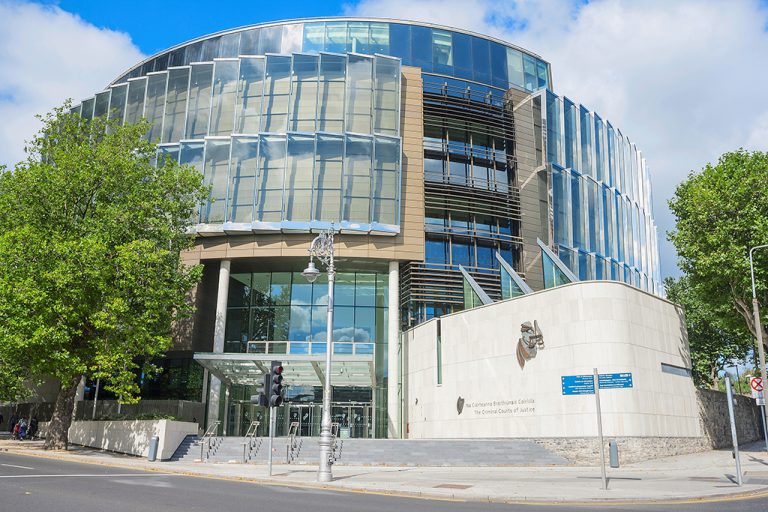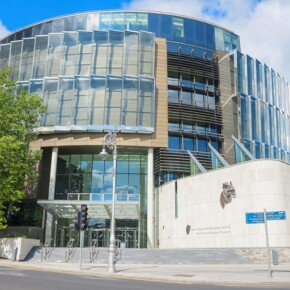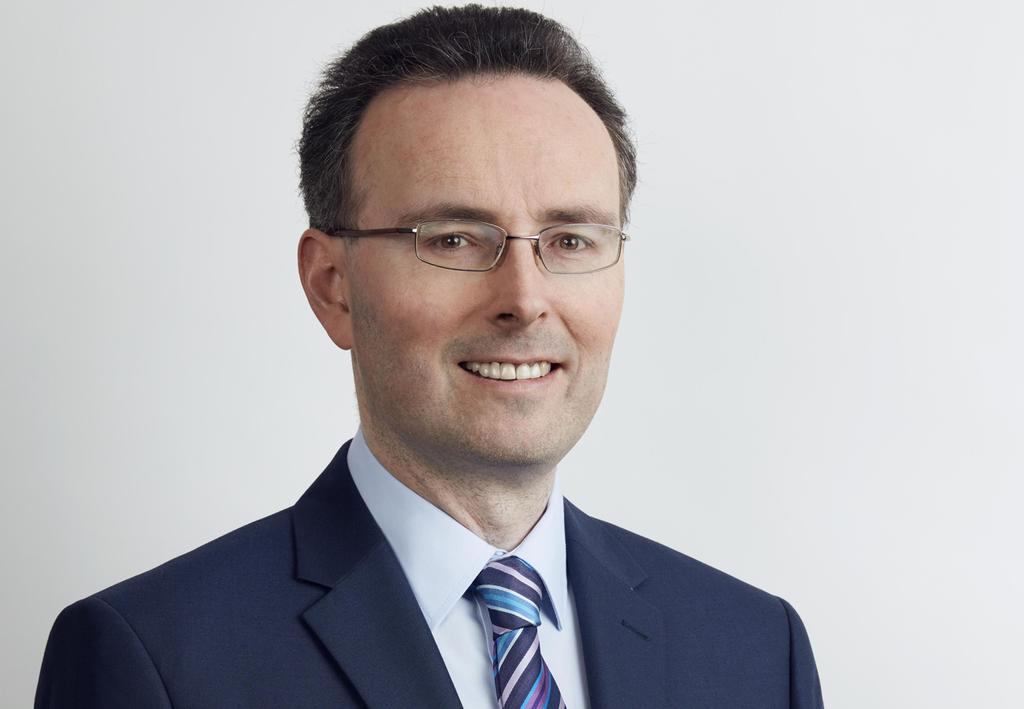Lynn a “greedy” risk-taker who lived for the next big deal
Padraig Conlon 18 Dec 2023
By Isabel Hayes
Former solicitor Michael Lynn is a “greedy” risk-taker who lived for the next big deal and pulled the wool over the banks’ eyes, his multi-million euro theft trial has been told.
In his closing speech to the jury on Friday, prosecuting counsel told the jury: “He should not be allowed to pull the wool over your eyes.”
“I think Mr Lynn is a risk-taker,” Karl Finnegan SC, prosecuting, told the Dublin Circuit Criminal Court trial.
“It’s clear he lived for the next big deal…He is still gambling but the gamble has changed.
“The gamble is you might accept his version of events.”
Mr Lynn (55) of Millbrook Court, Redcross, Co Wicklow is on trial accused of the theft of around €27 million from seven financial institutions.
He has pleaded not guilty to 21 counts of theft in Dublin between October 23, 2006 and April 20, 2007.
It is the prosecution’s case that Mr Lynn obtained multiple mortgages on the same properties, in a situation where banks were unaware that other institutions were also providing finance.
The financial institutions involved are Bank of Ireland, National Irish Bank, Irish Life and Permanent, Ulster Bank, ACC Bank, Bank of Scotland Ireland, and Irish Nationwide Building Society (INBS).
Mr Lynn has told the court he had “off the books” agreements with the banks to use the loan money for his property developments abroad.
He said he had a “secret deal” with former Irish Nationwide chief Michael Fingleton in relation to the use of Irish Nationwide funds for overseas property development, which Mr Fingleton had a stake in.
In his closing speech, Mr Finnegan said that if the jurors had any bias towards banks, towards solicitors or property developers, they must put those biases aside.
He said the banks have not received good attention in the media and some jurors may know people who had unhappy experiences with them over the years.
“That can’t be part of your consideration,” he said.
“Two wrongs don’t make a right.”
He said there may be a suggestion that the banks were “shoddy, careless, reckless”.
“It doesn’t matter,” he said noting that if someone leaves their front door open and their jewellery is stolen – “They were careless, but it is still theft”.
He said he believed what happened with Mr Lynn was “very simple and straight-forward”.
“He started off in practice, he does well. Goes into property development, does well.
“Builds up a relationship with the banks, is a good borrower, he pays back his loans.
“He’s a perfect client. He’s a very, very capable and clever man.”
But Mr Lynn got “greedy” and abused the position he had put himself in, Mr Finnegan said.
Outlining the legal definition of theft, Mr Finnegan said it doesn’t have to be permanent and can be temporary.
“I have no doubt Mr Lynn wasn’t planning on taking €27 million and sailing into the sunset with it and disappearing.
“He probably was going to pay it back, but he got caught out.”
Mr Finnegan said “millions were to be made abroad” and Mr Lynn was hoping to flip properties overseas and have so much money that he would be able to repay the banks.
“It doesn’t matter, it’s still theft,” Mr Finnegan said.
Mr Finnegan said it was “implausible” that these seven financial institutions across the length and breadth of the country were “in cahoots” with Mr Lynn in terms of his borrowings and were facilitating Mr Lynn in a “unique” way.
He said it was completely unclear what benefits the banks were getting from such an arrangement.
He noted the witnesses from the various banks who gave evidence and denied such an arrangement existed, including one who termed it a “fairytale”.
“This case is about credibility,” Mr Finnegan said.
“You have to decide where the credibility lies.”
Mr Finnegan said Mr Lynn first brought up the secret deals with bankers in his first trial, noting that it is now limited to Michael Fingleton – former Irish Nationwide boss.
He said it was “damning” that Mr Lynn only first mentioned having a memo of understanding with Mr Fingleton in this trial.
“He was trying to embellish. He’s a gambler and he’s trying to push it further,” he told the court.
“It’s spectacular that in the first trial there was no mention of a memo of understanding.”
Mr Finnegan said Mr Lynn was “deflecting responsibility”.
“The defence is short on corroboration, but heavy on blame, heavy on allegations against people, heavy on allegations against individuals who came before you to say it’s not true.”
Mr Finnegan urged the jury to use its common sense and experience.
“If you do that, I trust the correct decision is reached,” he said.
Starting his closing speech to the jury, Paul Comiskey O’Keeffe BL, defending, said the jury’s decision would affect the balance of Mr Lynn’s life.
“That underlines the seriousness and solemnity of the decision you have to make,” he said.
Mr Comiskey O’Keeffe reminded the jury that Mr Lynn remains an innocent man and the burden of proof is on the prosecution.
He said Mr Lynn’s defence is that in respect of one financial institution – Irish Nationwide – there was a profit share agreement with Mr Fingleton, while the other banks were aware of the purpose of Mr Lynn’s borrowings.
“If you accept the banks were aware, then there’s no theft,” Mr Comiskey O’Keeffe said. “Theft requires deception.”
Mr Comiskey O’Keeffe said anyone who may have applied for a car loan and then spent it on a holiday might be surprised to hear that this is considered theft.
“Is a lie still a lie if everybody knows it’s a lie?” he said, adding, “What makes untruth a lie is deception.”
Mr Comiskey O’Keeffe said the prosecution relied heavily on the assertion that Mr Lynn was a perfect client for the banks.
“This perfection was based on custom and practice of undertaking-only mortgages going back to the 1990s,” he said.
“That’s how he achieved such an attractive status in that respect.”
Defence counsel said the prosecution had discounted the issue of insurance as being irrelevant in relation to the banks, but he noted it only emerged in the second trial that Bank of Ireland received an insurance payout.
“It’s relevant in how you interpret the evidence of the banks,” he said, noting this bank also had internal emails indicating they were aware of Mr Lynn having undertaking-only mortgages.
Mr Comiskey O’Keeffe said there was no assertion on the defence side that the banks were involved in a conspiracy.
“What’s bizarre about these seven distinct banks is that not one of them ever sent a letter of demand seeking compliance with an undertaking,” he said.
“(Mr Lynn) has never registered a mortgage in favour of any bank.
“This was the business model, the custom and practice that developed.
“You can’t account for this unique similarity between these seven financial institutions without seeing Mr Lynn as a common thread between them all.”
The trial resumes on Monday before Judge Martin Nolan and the jury, with the defence closing speech expected to continue then.











